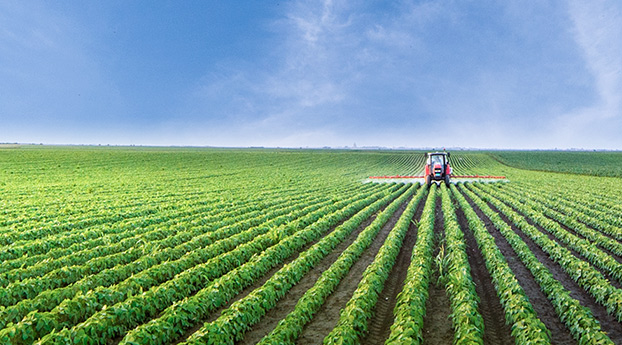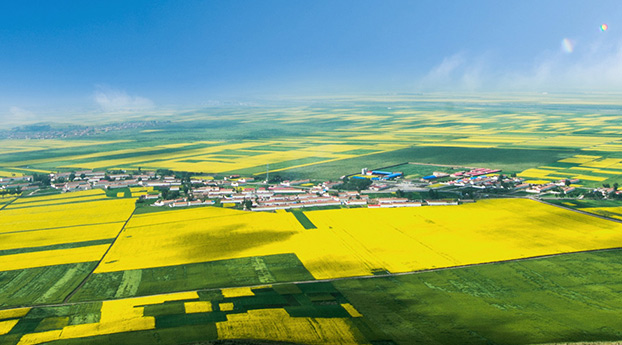Improvement of water environment Jinling increase appearance level this year will eliminate black smelly water bodies in the whole city
Release time:2018-09-19 Views:262
On September 4, the Municipal Party Committee and Municipal Government held a meeting of the city's ecological environmental protection conference and the promotion meeting of pollution prevention and control. Perform deployment and promote the "high quality ecological environment" at the forefront of the province.
"A thriving ecology leads to a thriving civilization, while a declining ecology leads to a declining civilization", "harmonious coexistence between man and nature", "clear waters and lush mountains are invaluable assets", "a sound ecological environment is the most universal welfare for people's livelihood", "mountains, rivers, forests, fields, lakes and grasses form a community of life", and "the strictest system and the strictest rule of law are used to protect the ecological environment". As an important city in the Yangtze River Economic Belt, Nanjing should firmly shoulder its responsibility as the provincial capital of "high-quality ecological environment" and ensure that the battle against pollution will be won by 2020.
In the battle against air, water and soil pollution, water control is particularly important for Nanjing. Nanjing is a beautiful ancient capital with mountains and rivers and forests, and water is a unique gift given to Nanjing by nature -- water provides opportunities for the development of this metropolis developing across the river, and also makes Nanjing people feel the warm beauty of the small bridge running water in the South. However, due to some historical reasons, many rivers in the past appeared black and smelly phenomenon, affecting people's happiness. Since 2016, a battle to wipe out black and smelly water has been waged in Nanjing.
The clear pond in the south of the old city is a small lake. Lotus leaves are in full bloom at the moment. Leaning against the railings, you can see the poetry and painting scenery between the fish playing in the water at the bottom. But until a few years ago, it was a foul-smelling pool of floating garbage. Through a set of "combination therapy", such as intercepting pollution, dredging and biological treatment, the pond was finally cleared. Now, the clean water pond treatment has become a sample of Nanjing water environment management.
As well as the changes in the pond, there are other rivers in Nanjing. The river became clear, the river bank became beautiful, a river became a scenery line. In 2017, Nanjing completed the renovation of 150 river channels in the built-up areas, which basically eliminated black and smelly water bodies. This is a stage of Nanjing's battle to control the water, the beautiful ancient capital of the river back to life.
Nanjing is a large city across the river, water pollution control pressure has been relatively large. At present, there are a total of 7 provincial controlled tributaries into the river in our city, of which 3 are basically up to standard, and 4 are classified as inferior V, which are respectively Jinchuan River (Baota Bridge), Waiqinhuai River (Sancha River mouth), East Branch of North Ten Li Changgou (Hongshan Bridge), Chengnan River (Longwang Temple). According to the requirements of the water control battle, by 2020, Nanjing should eliminate the bad V water in the whole city, and the flow section into the river branch meets the requirements of the provincial examination and the national examination. However, due to historical reasons, there are problems such as domestic sewage flowing into the river in the four tributaries with inferior V water quality. The elimination of inferior V water in these four tributaries has become a tough battle in the battle of water environment management in our city.
In June this year, the Standing Committee of the CPC Municipal Committee studied and decided to establish the leadership responsibility system for the improvement of water quality in the sections of rivers controlled by the province. The main leaders of the four sets of municipal bodies should each claim a sub-grade V tributary of rivers, coordinate from a high level, overcome difficulties, and resolutely strive to meet the water quality standards.
The Jinchuan River runs diagonally through the northern part of the main city of the city, and the basin mainly covers the old city. With dense population, complicated situation and intertwined problems, it is the most difficult to control. This "hot potato" was taken over by Zhang Jinghua, member of the Standing Committee of the Provincial Party Committee and secretary of the Municipal Party Committee. According to the division of labor, the outer Qinhuai River (three branching estuary and seven bridge urns) by the mayor LAN Shaomin is responsible for, North ten miles Changgou east branch (Hongshan Bridge) by the city People's Congress Standing Committee director Long Xiang is responsible for, Chengnan River (Dragon Temple) by the city CPPCC Chairman Liu Yi 'an is responsible for.
The city leaders connected the inferior V water to the tributaries of the river, which showed the determination of Nanjing to control the river and the "acceleration" -- to meet the difficulties head-on and ensure the completion of the improvement task of the tributaries of the river. Once a month, the site dispatch, so that the water environment improvement project high-speed progress.
Whether water quality improves depends on the data. In the water quality monitoring in July, among the "hard bones" recognized by the main leaders of the city's four sets of groups, one river has been promoted to Class V water. In the comprehensive monitoring from January to August, it has been crossed out of the list of 4 bad V sections into the river, and the bad V sections into the river have been reduced to 3.
At the same time, Nanjing's water environment is improving on the basis of eliminating black and smelly water bodies in built-up areas.
This year, Nanjing set the goal of eliminating bad V water in built-up areas and eliminating black and smelly water in the whole city. By the end of August, 60 of 72 river water environment improvement projects had been started, of which 14 had been completed. Seven of the eight black and smelly river improvement projects in the suburbs have begun construction, of which two have been completed; A total of 89 of 99 projects to improve black and smelly ponds in rural areas were basically completed. Victory is in sight in the city-wide campaign to rid the city of black and smelly water.
Source: A1, Nanjing Daily, September 19, 2018

















